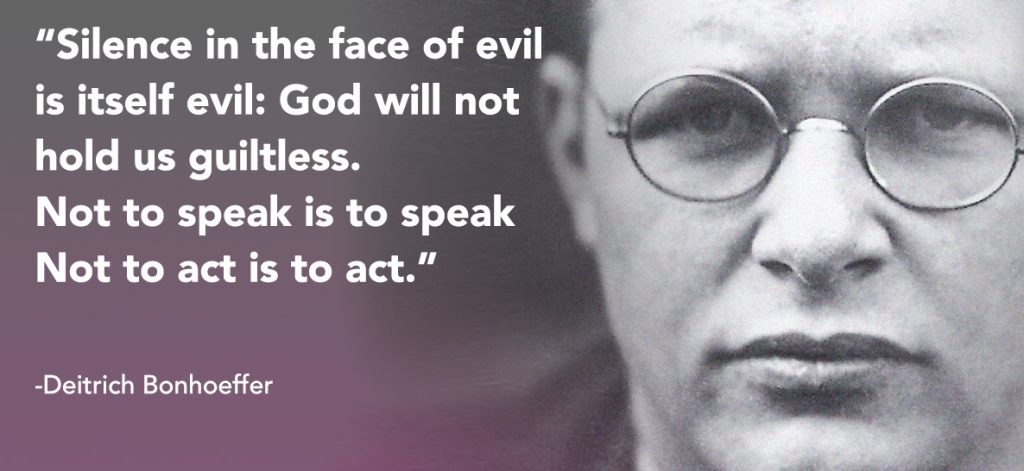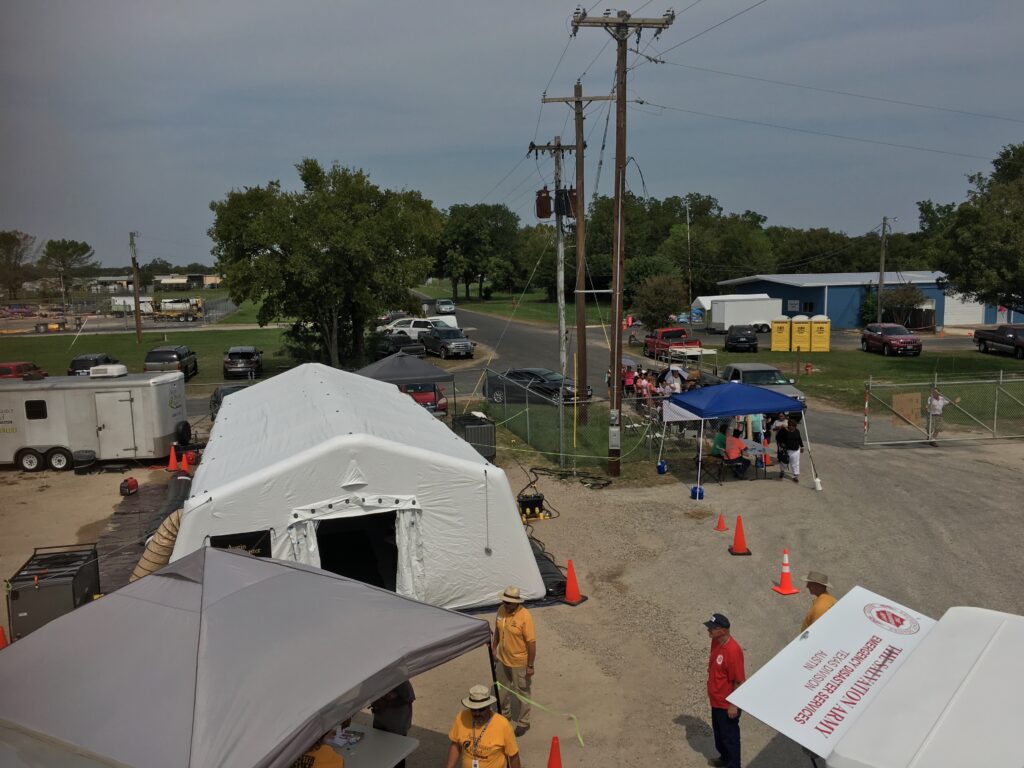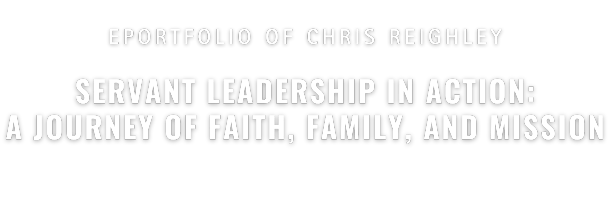— reflection on ethics
The Cost of Integrity:
An Ethical Reflection on Leadership through the Lives of Wilberforce, Bonhoeffer, and My Own Journey
Ethical leadership isn’t glamorous. It’s not the shining moments in the spotlight nor the recognition of a job well done. It’s the sleepless nights, the moments of doubt, and the heavy, unseen burden that presses into your heart. It’s standing in the middle of chaos and asking yourself, God, what am I doing here? In my journey as a disaster relief chaplain, I’ve been confronted with decisions that test my very core—moments where the easiest thing to do would have been to act quickly or simply look away—do the easy thing— but something inside wouldn’t let me.
I’ve often turned to the examples of William Wilberforce and Dietrich Bonhoeffer—two men who embodied the raw, unfiltered reality of ethical leadership. Wilberforce, driven by the fire of justice, and Bonhoeffer, standing steadfast in the face of evil, remind me that leadership isn’t measured by success but by faithfulness. Their stories resonate with the moments I’ve faced when ethical choices felt like standing alone in a storm, unsure if I was making the right call. Both of these men led lives grounded in a biblical worldview—one where their ultimate allegiance was to God, and their choices reflected their desire to live out biblical truth, even at great personal cost.
Wilberforce Moment: The Burn of Ethical Compassion
William Wilberforce is an example of a leader driven by a biblical understanding of justice. His leadership was grounded in the belief that all people are created in the image of God (Genesis 1:27), and therefore, slavery was an affront to the dignity of God’s creation. The driving force behind his relentless pursuit to abolish the slave trade was his conviction that God’s justice had to prevail on Earth. I imagine him carrying the heavy burden of knowing that every day slavery persisted, and countless lives were suffering in unimaginable ways. He fought for years, often discouraged by defeat, but it was his unwavering belief in biblical justice that kept him moving forward.

I’ve felt the weight of ethical compassion in my own leadership. During Hurricane Harvey, standing in the face of overwhelming need, I felt the pull to act quickly—to rush in and help wherever I could. But something inside held me back, whispering that my first duty was to protect my team. It felt like an agonizing decision, but ethical leadership, like Wilberforce’s, meant choosing the path of long-term good over immediate action. Proverbs 16:9 reminds us, “The heart of man plans his way, but the Lord establishes his steps.” In that moment, I wasn’t chasing success; I was trying to live out my calling as a steward of the people entrusted to me.
Bonhoeffer Moment: The Quiet Agony of Ethical Conviction
Dietrich Bonhoeffer’s leadership was deeply shaped by his biblical convictions, particularly his understanding of Christ’s call to stand against evil, even at the cost of personal safety. Bonhoeffer knew that silence in the face of injustice would make him complicit, and he could not reconcile that with his understanding of God’s justice. His choice to resist Hitler was rooted in his interpretation of passages like James 4:17: “So whoever knows the right thing to do and fails to do it, for him it is sin.” Bonhoeffer’s life reminds me that ethical leadership often comes at great personal cost, and yet, the call to obey God is greater than the desire for personal safety or success.

I have had my own Bonhoeffer moments—times when I knew the right choice would come with consequences that were hard to accept. In disaster relief, I have often been faced with ethical decisions where doing the right thing felt like a step backward. I think of Jesus’ words in Luke 9:23, where He calls His followers to take up their cross daily. Leadership, for me, has been about learning to take up that cross, even when it’s uncomfortable. Bonhoeffer’s example reminds me that leadership rooted in biblical truth is not about winning the approval of others but about standing firm in God’s truth, regardless of the cost.
Biblical Choices in Leadership: Walking by Faith
Ethical leadership isn’t just a list of principles—it’s a walk of faith, guided by the conviction that we are called to reflect God’s character in all we do. The Bible is filled with examples of leaders who were tested in their ethical decision-making. Joseph, sold into slavery by his brothers, chose to act with integrity and honor when he had the opportunity to retaliate (Genesis 50:20). Daniel, thrown into the lion’s den for refusing to abandon his faith, demonstrated that ethical leadership is about faithfulness to God above all else (Daniel 6).


In my role as a chaplain, I’ve had to make decisions that didn’t always seem fair or easy, but like Joseph and Daniel, I’ve learned to trust in God’s providence. One particular moment comes to mind during a disaster response when resources were running low. I had to decide who would receive aid, and the weight of that decision felt unbearable. But I held onto the truth of Micah 6:8—“He has told you, O man, what is good; and what does the Lord require of you but to do justice, and to love kindness, and to walk humbly with your God?” Ethical leadership, in that moment, meant walking humbly with God, trusting that He would guide my steps.
My Code of Ethical Leadership Behavior
At the heart of ethical leadership is the responsibility to live out your values in every decision, every action. Two values that anchor me are integrity and selflessness, both of which are deeply rooted in Scripture.
Integrity is central to biblical leadership. Proverbs 10:9 says, “Whoever walks in integrity walks securely, but he who makes his ways crooked will be found out.” Integrity is the choice to do the right thing when no one is watching, to stand firm in truth even when it costs something. Whether in disaster zones or in the quiet moments of daily life, integrity keeps me grounded in my calling.
Selflessness is a reflection of Christ’s leadership, who came not to be served but to serve (Mark 10:45). In my work, this means putting the needs of others before my own comfort or recognition. Ethical leadership through selflessness requires daily sacrifices—whether that’s giving up personal time or foregoing recognition to ensure others are cared for.
These values form my personal code of behavior, guiding me in my work and ensuring that my leadership reflects the heart of God in every decision.
Ethical Leadership in a Digital World: A Philosophy of Online Communication
In today’s world, ethical leadership doesn’t stop at the physical. It extends to our online presence, where the words we choose and the information we share have the power to build trust—or tear it down. My philosophy of online communication is simple but vital: be honest, be responsible, be careful.
Honesty means being transparent in my online interactions. I don’t manipulate facts or try to present a perfect image. Responsibility means understanding that what I share online represents not just me but the organizations I serve and the people who trust me. Carefulness means being mindful of confidentiality and ensuring that I never share sensitive information inappropriately.
C.S. Lewis once wrote, “Integrity is doing the right thing, even when no one is watching.” This quote has been a guiding principle for me, both online and offline. Whether in the field or on a virtual platform, integrity demands consistency in character. As I grow in leadership and potentially face roles requiring greater scrutiny, I am committed to ensuring that my digital presence mirrors the ethical standards I uphold in every other part of my life.
Conclusion: The Biblical Call to Ethical Leadership
Ethical leadership is not about the success the world recognizes but about faithfulness to God’s call. The stories of Wilberforce and Bonhoeffer remind me that true leadership is rooted in biblical truth, where the cost of integrity is often high but always worth it. Their lives reflect the reality that ethical leadership is not always met with victory but with a deep, enduring commitment to stand firm in what is right.
In my own journey, I’ve come to realize that leadership, especially ethical leadership, is about living out God’s truth in every decision, every challenge. As Proverbs 4:7 says, “Wisdom is the principal thing; therefore get wisdom: and with all thy getting, get understanding.” Wisdom, rooted in Scripture, will continue to guide me as I lead with integrity, selflessness, and faithfulness, trusting that God’s purposes are higher than my own.
References
Colson, C. (2007). God and Government: An Insider’s View on the Boundaries between Faith and Politics. Zondervan.
C.S. Lewis. The Weight of Glory and Other Addresses. HarperOne.

